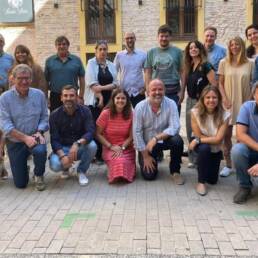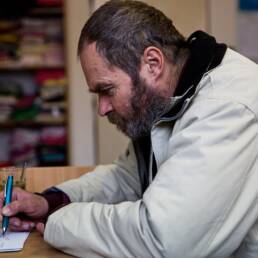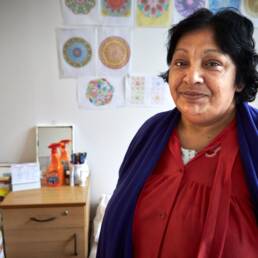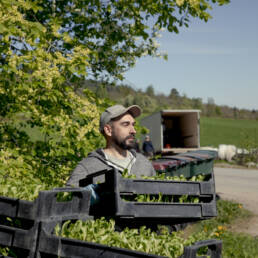Author
Peter Verhaeghe
Policy and Advocacy Officer
Tel: +32 (0)2 235 03 96
pverhaeghe@caritas.eu
Everyone has the right to work, to free choice of employment, to just and favourable conditions of work and to protection against unemployment.
So states the Universal Declaration of Human Rights (Article 23). This is also confirmed by the UN’s 2030 Agenda for Sustainable Development Goal 8, which calls for decent work for all. According to the ILO, decent work involves opportunities for work that is productive and delivers a fair income, security in the workplace and social protection for families, better prospects for personal development and social integration, freedom for people to express their concerns, organise and participate in the decisions that affect their lives and equality of opportunity and treatment for all women and men. Key provisions of the Council of Europe’s (Revised) European Social Charter protect the right to work, to just, safe and healthy working conditions and a fair remuneration, among others. So clearly there is an agreed definition of and international legal frameworks for decent work. Yet, even in Europe, the above conditions go unmet on a daily basis and not everybody has access to decent work.
Even the very first condition ‘decent work involves opportunities for work’, a basic prerequisite in order to have ‘decent work’, is a challenge for many people across Europe. Decent work is often difficult to find for young people, migrants, Roma, women, persons with disabilities, older workers, irregular workers and those working in non-standard forms of employment. The reasons for this vary. Sometimes it is because of inadequate or poor-quality education resulting in a lack of skills or discrimination and prejudice creating barriers to employment. At other times it is due to insufficient recognition of qualifications and inability to get legal documents leading to irregular work and exploitation. The lack of clear information on rights and opportunities or the lack of care facilities for dependents prevent full-time work, while involuntary part-time or temporary work lead to limited or lower social protection. All these ultimately hinder social inclusion. What else all these aspects have in common is a flawed understanding of the worth and dignity of work and of workers. In order to achieve decent work within and beyond Europe, we must respect the worth and dignity of work and workers in all areas, at all levels and by all stakeholders. This is what must be properly understood and guaranteed at all cost.
The right to decent work for all, family rights and all human rights be respected in the life of each company, for every worker, and guaranteed by the social policies of each country.¹
Pope Francis in the Economy of Francesco
In most, if not all, European countries, there is legislation that aims to create at least some of the conditions for decent work, such as on minimum wages, working conditions, social protection and democratic representation through trade unions. However, across Europe, there are still common gaps in the realisation of decent work as legislative and policy initiatives do not necessarily go far enough to tackle the problems. This is particularly the case with legislation on minimum wages, reskilling and upskilling policies, support for young workers, particularly NEETs (youth not in employment, education or training), initiatives to prevent irregular work and sanction employers engaged in this, and the support of social economy actors. These policy areas need to be reviewed in many European countries and adapted to new contexts. Sometimes well-designed measures are already in place, but they are not put fully into practice, such as with anti-discrimination, anti-racism and equality policies, which still prevent access to the labour market for many people.
It is clear that there is still a lot of work to be done in Europe to achieve the Agenda 2030 goal of decent work for everyone. In the context of the COVID-19 recovery, now is high time for governments to act. We, therefore, call on all Member States to sign and ratify the Revised European Social Charter and all its provisions if they have not yet done so, and to accept the Collective Complaints Mechanism, which is a unique instrument of dialogue to improve the respect of social and workers’ rights.
Notes:
1. Pope Francis (2020), The Economy of Francesco, November 21 2020, https://francescoeconomy.org/final-statement-and-common-commitment/












